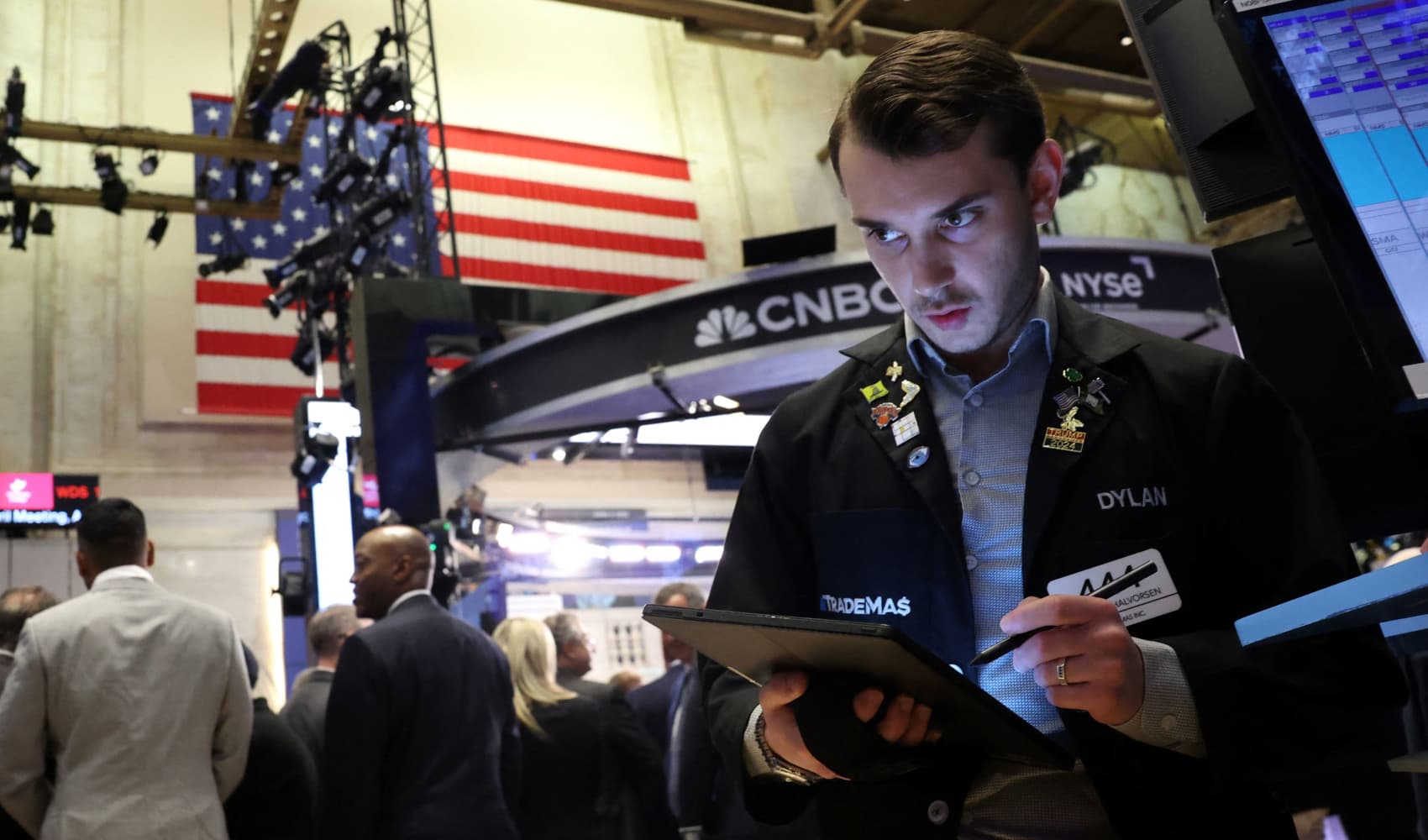
Sonoma State University
- To make college more accessible, Sonoma State University is offering “guaranteed admission” to high school students who have completed the requisite coursework and have a minimum 2.5 high school GPA.
- Other schools have tried similar moves to get more students enrolled.
- But not only are fewer students interested in pursuing a degree after high school, the population of college-age students is also shrinking.
To help make college a reality, Sonoma State University is trying a relatively new approach: High school students who have completed the requisite coursework and have a minimum 2.5 high school GPA are now "guaranteed admission" to the Rohnert Park, California-based school.
WATCH ANYTIME FOR FREE
Stream NBC10 Boston news for free, 24/7, wherever you are. |
"We really wanted to provide a more visible pathway," said Ed Mills, vice president for strategic enrollment at Sonoma State, a member of the California State University system.
Since the school began accepting applications on Oct. 1 for the fall 2024 term, there has been an uptick in interest. "Our applicant pool is already up about 5% from last year and I expect that increase to continue to rise," Mills said.
Get updates on what's happening in Boston to your inbox. Sign up for our News Headlines newsletter.
More from Personal Finance:
Should you apply early to college?
Strategy could shave thousands off college costs
Public colleges aren't as cheap as you'd think
"Everybody wins in this scenario," according to Robert Franek, The Princeton Review's editor-in-chief and author of "The Best 389 Colleges."
Guaranteed admission is catching on.
Money Report
Virginia Commonwealth University in Richmond, Virginia, recently announced a guaranteed admission program for first-year freshman applicants who have a GPA of 3.5 or higher and are in the top 10% of their high school graduating class.
Other schools and school systems have launched similar initiatives to get more students enrolled. Last spring, the State University of New York sent automatic acceptance letters to 125,000 graduating high school students.
Even if acceptance is not guaranteed, "there are so many schools that have reasonable admission standards and many of them are among the best schools in the country," Franek said.
In fact, of The Princeton Review's list of 389 best colleges, 254 schools admit at least half of all applicants. More than a quarter admit at least 80% of those who apply. (On the flip side, only 8% of schools on the list of best colleges admit less than 10% of applicants.)
"If you attain a certain level of academic competitiveness, you will earn admission and that's very valuable," Franek said.
College enrollment is dropping

Still, fewer students are going to college.
Nationwide, enrollment has noticeably lagged since the start of the pandemic, when a significant number of students decided against a four-year degree in favor of joining the workforce or completing a certificate program without the hefty price tag or Zoom screen.
However, a downturn in enrollment was in the works long before 2020.
"The enrollment crisis didn't start with the pandemic, it accelerated with the pandemic," Hafeez Lakhani, founder and president of Lakhani Coaching in New York, recently told CNBC. "This is the fuel on the fire."
In fact, undergraduate enrollment in the U.S. topped out at roughly 18 million students over a decade ago, according to the National Center for Education Statistics.
Today, there are more than 2.5 million fewer students enrolled in college, Doug Shapiro, executive director of the National Student Clearinghouse Research Center, estimated.
Costs keep rising
Not only are fewer students interested in pursuing any sort of degree after high school, but the population of college-age students is also shrinking, a trend referred to as the "enrollment cliff."
"There's a broad-based drop in belief or trust in higher education as an institution," said Cole Clark, a managing director within Deloitte's higher education practice and co-author of a recent trends report. "It's as much of a threat as the demographic cliff."
These days, only about 62% of high school seniors in the U.S. immediately go on to college, down from 68% in 2010. Low-income students who feel priced out of a postsecondary education are often those who opt out.
Steadily, college is becoming a path for only those with the means to pay for it, other reports also show.
Would-be college students are looking more closely at the return on investment as tuition costs remain high and a shortage of workers increases opportunities in the labor force — with or without a diploma.

At the same time, deep cuts in state funding for higher education have pushed more of the costs on to students and paved the way for significant tuition increases.
And costs are still rising. Tuition and fees plus room and board for a four-year private college averaged $53,430 in the 2022-23 school year. At four-year, in-state public colleges, it was $23,250, according to the College Board.
More high schoolers want career training
Most Americans still agree a college education is worthwhile when it comes to career goals and advancement. However, only half think the economic benefits outweigh the costs, according to a report by Public Agenda, USA Today and Hidden Common Ground — and young adults are particularly skeptical.
The rising cost of college and ballooning student loan balances have played a large role in changing views about the higher education system, which many think is rigged to benefit the wealthy, the report found.
Only 45% of students from low-income, first-generation or minority backgrounds believe education after high school is necessary, according to a study by ECMC Group.
High schoolers are putting more emphasis on career training and post-college employment, the nonprofit found after polling more than 5,000 high school students six times since February 2020.
More than 75% of high schoolers now say a two-year degree or technical certification is enough, and only 41% believe they must have a four-year degree to get a good job, a separate report by Junior Achievement and Citizens also found.
"A lot of students are weighing their options," said Connie Livingston, head of college counselors at college counseling firm Empowerly and a former admissions officer at Brown University.
"Does it make more sense to go to community college, trade school or directly into the workforce?" she said. "In this economic climate, that's attractive."
Earning a college degree is almost always worthwhile
And yet, earning a bachelor's degree is almost always worthwhile, research shows.
Bachelor's degree holders generally earn 75% more than those with a high school diploma, according to "The College Payoff," a report from the Georgetown University Center on Education and the Workforce — and the higher the level of educational attainment, the larger the payoff.
But even while degrees deliver a strong premium in the job market, confidence in the higher education system is declining, according to Deloitte's Clark.
"There is a lot of rhetoric about the individual with a college degree and a ton of debt and underemployed," he said.
"You are going to continue to see this paradox," Lakhani added. "There's a subconscious consensus that it's only worth going to college if you can go to a life-changing college."
Join CNBC's Financial Advisor Summit on October 12th, where we'll talk with top advisors, investors, market experts, technologists, and economists about what advisors can do now to position their clients for the best possible outcomes as we head into the last quarter of 2023, and face the unknown in 2024. Learn more and get your ticket today.






